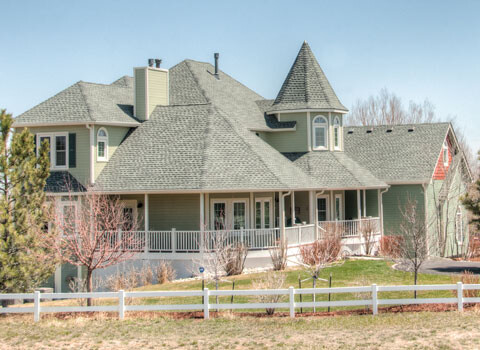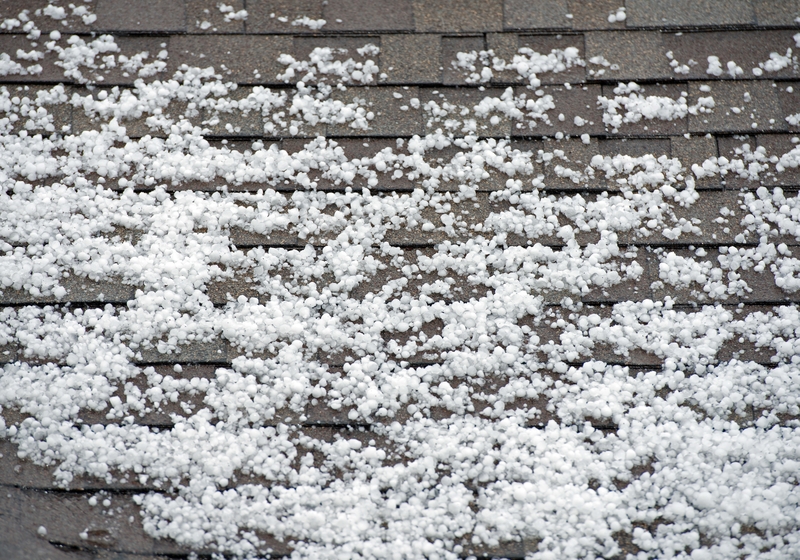Hail storms in the Denver area can cause significant damage to your roof. While it isn’t hard to spot damage from large hail, you can easily miss signs of damage from smaller hail. Since hail can lead to leaks or more severe damage to your roof and your home interior, it’s important to know how to check for hail damage. Keep the following information in mind, so you’ll know what to look for and when to schedule roof repair in Denver.
Types of Hail Damage
Hail can dent or even crack your roof shingles, especially if large pieces hit them. Hail can also cause the granules on asphalt roof shingles to become loose. Over time, these granules can wash away when it rains, which leaves the asphalt exposed. This can cause more wear and tear in a way that shortens your roof’s lifespan and increases your risk of leaks.
What to Do After Hail Storms
After hail storms, it’s important to determine if your roof has any hail damage, so that you can have it repaired as soon as possible. While you can look at your roof from the ground for visible dents or other signs of damage, you should have roofing professionals do a more thorough inspection. Schedule a roof inspection in Denver to make sure that all hail damage is detected. Roofing contractors can go up on your roof and check all areas for signs of damage that you might not notice with a quick visual inspection from the ground. Professional roofers will check for the following signs of hail damage.
Shingle Roof Damage
Roofers will look for dents, cracks and areas of loose or missing granules on your asphalt shingles. They might also check for piles of granules near downspouts, which also indicates roof damage.
Metal Roof Damage
If you have a metal roof, professional roofers will look for dents from hail. Metal roofs tend to hold up better to hail, but larger pieces might damage this material.
Slate or Tile Roof Damage
Slate and tile roofs are highly durable and usually have a lower risk of hail damage than shingle roofs. Roofing contractors will look for chipped or cracked tile or slate on your roof after hail storms.
Cedar Shake Roof Damage
Hail can cause cedar shake roofs to splinter or crack. Cedar shakes can also become chipped when hit by hail. Roofing experts will look for these signs of damage if you have this type of roof.
Flashing and Vent Damage
The metal areas of your roof, such as the flashing and vents, can also end up with hail damage. When you have a Denver roof inspection done, local roofing contractors can look for dents or other signs of damage to these parts of your roof. The flashing on your roof normally surrounds chimneys and other areas where water could easily get in, so it’s essential to have it checked for cracks or other hail damage.
Gutter and Downspout Damage
Professional roofers will check your gutters and downspouts for hail damage during an inspection. This involves looking for dents or other damage that needs to be repaired in order for your gutters and downspouts to work properly at keeping water away from your home.
Interior Damage
After a hail storm, you can check your interior for signs of leaks or other damage. Check the upper floor and attic in your home for water spots or stains that can indicate a leak from your roof. Have professional roofers inspect your roof if you notice interior damage.
Dependable Roof Repair in Denver
If you need to have your roof checked for hail damage, please contact Advanced Exteriors. Our team offers Denver roof inspection services, including inspections for hail damage. In addition to checking your roof, we can perform prompt roof repairs to fix any damage we find.


